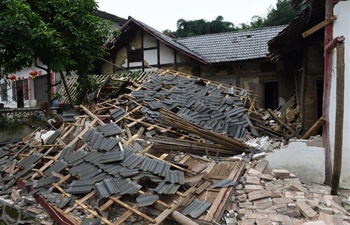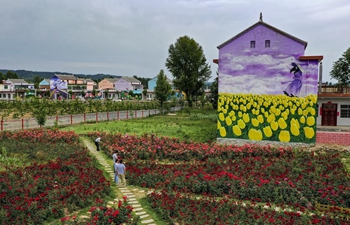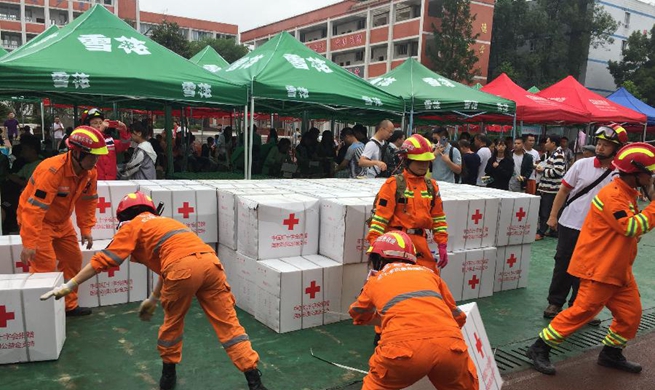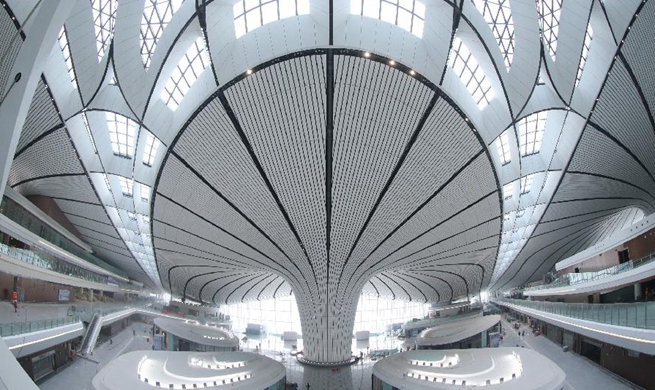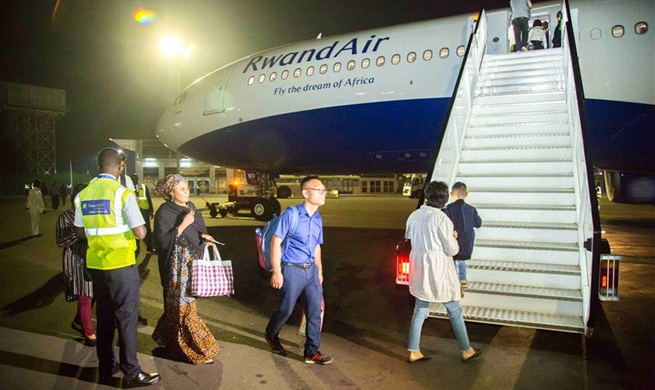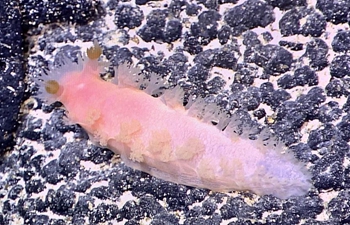UNITED NATIONS, June 18 (Xinhua) -- Billions of people around the world did not have access to water, sanitation and hygiene services by 2017, according to a report released by the United Nations Children's Fund and the World Health Organization on Tuesday.
Some 2.2 billion people around the world did not have safely managed drinking water services, 4.2 billion did not have safely managed sanitation services, and 3 billion lacked basic handwashing facilities, said the report.
The report, "Progress on drinking water, sanitation and hygiene, 2000-2017: Special focus on inequalities," revealed that 1.8 billion people had gained access to basic drinking water services since 2000, but there were vast inequalities in the accessibility, availability and quality of these services.
About 80 percent of people living in rural areas lacked access to these services. In a quarter of the countries with estimates for different wealth groups, coverage of basic services among the richest was at least twice as high as among the poorest, according to the report.
Some 2.1 billion people had gained access to basic sanitation services since 2000. But in many parts of the world, waste management services were still lacking. Some 2 billion people still lacked basic sanitation, among whom 7 out of 10 lived in rural areas and one-third lived in the least developed countries.
Since 2000, the proportion of the population practicing open defecation had more than halved, from 21 percent to 9 percent and 23 countries had achieved near elimination, meaning less than 1 percent of the population was practicing open defecation.
Globally, 673 million people still practiced open defecation in 2017. In 39 countries, the number of people practicing open defecation actually increased, the majority of which were in sub-Saharan Africa, where many countries had experienced strong population growth over this period.
The report showed that 3 billion people globally lacked basic handwashing facilities with soap and water at home in 2017. It also showed that nearly three-quarters of the population of the least developed countries did not have basic handwashing facilities.
Every year, 297,000 children under 5 died due to diarrhea linked to inadequate water, sanitation and hygiene services. Poor sanitation and contaminated water were also linked to transmission of diseases such as cholera, dysentery, hepatitis A, and typhoid, said the report.




